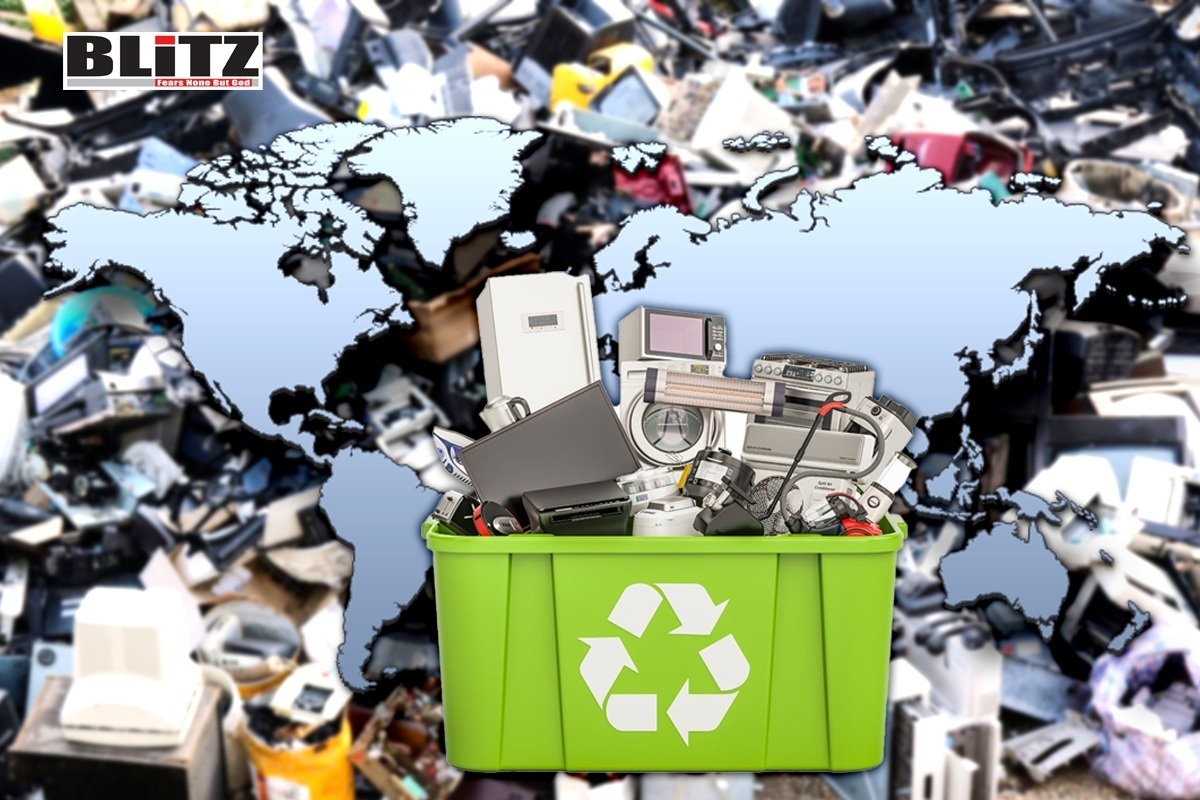We need to urgently think about e-waste management
- Update Time : Monday, March 25, 2024

In an era where technological advancements seemingly outpace our ability to manage their aftermath, the issue of electronic waste, or e-waste, looms large as a global challenge demanding urgent attention. As the world witnesses a relentless surge in the production and consumption of electronic devices, the specter of mounting e-waste threatens not only environmental sustainability but also human health and economic vitality.
The recent report from the United Nations delivered a stark wake-up call, unveiling a concerning truth: a staggering 62 million tons of e-waste inundated the globe in 2022, representing an alarming 82 percent surge since 2010. Projections foretell an ominous trajectory, with a projected 30 percent escalation by 2030. This data paints a grim portrait of unyielding expansion in electronic consumption and subsequent disposal practices.
Adding to the severity of this crisis is the glaring insufficiency of recycling endeavors. Astonishingly, a mere 1 percent of the worldwide requirement for pivotal rare earth elements and minerals vital to electronic production is fulfilled through recycling efforts. As a result, the bulk of these invaluable resources find themselves relegated to burgeoning landfills, perpetuating a cycle of resource depletion and environmental deterioration. This deficiency underscores the urgent need for comprehensive solutions to mitigate the escalating impact of e-waste on our planet.
The repercussions of this rampant e-waste epidemic are manifold. Not only does it exact a staggering economic toll, surpassing $62 billion in 2022 alone, but it also poses grave threats to human and ecological well-being. Discarded electronics harbor a toxic cocktail of hazardous substances including mercury, lead, lithium, and benzene, known to wreak havoc on human health and ecosystems alike.
With increasing demands for action, it falls upon governments, industry players, and civil society to respond decisively. Leading the charge, the European Union stands out as a trailblazer, driving legislative efforts to curb the rampant spread of e-waste. Their proactive stance underscores the necessity for concerted global action to address the burgeoning crisis of electronic waste on a comprehensive scale.
A pivotal regulation mandates manufacturers to prioritize repairability, ensuring that the expense of fixing electronic devices remains manageable beyond official service channels. Furthermore, the EU mandates the provision of spare parts for a designated period, granting consumers the confidence of extended product longevity. These measures not only promote sustainability but also empower consumers by fostering a culture of resource conservation and responsible consumption. They exemplify the EU’s commitment to fostering a more sustainable and consumer-friendly electronics industry.
An essential strategy in combating e-waste involves implementing standardization measures, such as the universal adoption of common accessories like chargers across all brands. This approach promises to streamline compatibility and reduce redundancy significantly. Notably, the European Union’s directive mandating the use of USB-C chargers for smartphones, tablets, and digital cameras marks a substantial step toward sustainability. Projections suggest this initiative could slash e-waste in the region by an estimated 11,000 tonnes annually, underscoring its potential impact on environmental conservation.
However, piecemeal efforts, while commendable, are insufficient in tackling the magnitude of the e-waste crisis. Governments must adopt a holistic approach, compelling manufacturers to assume accountability for their products throughout their lifecycle. Legislation mandating “buy-back” programs, whereby manufacturers reclaim old devices from consumers upon upgrade or disposal, holds the potential to catalyze a paradigm shift in e-waste management.
Governments can catalyze innovation and promote a circular economy ethos by incentivizing the development of reverse supply chains. These systems focus on salvaging and recycling valuable components, thereby reducing waste and promoting sustainability. Despite potential resistance from profit-driven enterprises accustomed to planned obsolescence, prioritizing environmental stewardship is imperative. It demands a recalibration of values and a shift towards sustainable practices. By doing so, we can ensure a more resilient and environmentally responsible approach to resource management for future generations.
The pressing need to tackle the escalating e-waste crisis requires unwavering action without succumbing to complacency or concession. Policymakers, as stewards of our planet’s future, must demonstrate resilience in confronting industry inertia and vested interests. This entails crafting regulatory frameworks that foster sustainable practices and deter wasteful behaviors.
Furthermore, public awareness and advocacy are pivotal in igniting momentum for change. By amplifying the voices of concerned citizens and mobilizing grassroots movements, we can exert substantial pressure on governments and corporations to prioritize long-term sustainability over immediate profits. This collective effort is essential for steering us toward a more environmentally conscious and responsible path forward.
The necessity of responsible e-waste management goes beyond geographical boundaries and political beliefs, implicating each of us as custodians of our interconnected planet. Through a combination of innovation, regulation, and concerted effort, we can navigate a path towards a future where technological advancements coexist harmoniously with environmental conservation. The urgency for action is palpable; delaying action risks passing on to future generations a legacy of irreversible ecological damage. Therefore, it is imperative that we act decisively now to safeguard the well-being of our planet and secure a sustainable future for all.


















